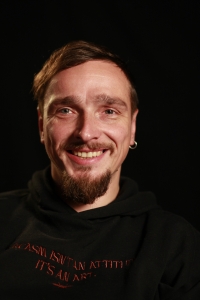“We arrived in Donetsk region. It was the beginning of August this year. Prior to that, we were in the preparation process, getting organised because we were all new to each other. It's important to understand that my unit suffered heavy losses in the area of the Svitlodarsk Bulge, Rubizhne, Severodonetsk. They were defending Severodonetsk. Out of the company, 23 people remained. Some were taken as prisoners, some were incapacitated or wounded, some were in psychiatric hospitals, and some were killed. The company was completely destroyed. The unit was replenished with people like me.. At the training area, they said to us, “Well, guys, you are kamikazes.. honestly, we are not just sitting in the rear... we work. There will be no offence to anyone from anyone. Whoever feels the need can step out of the formation and leave.” And there were people who stepped out of the formation and left. During the selection process, no one was fooling us; they told us exactly what would happen. I directly asked myself, “Roma, how do you feel about this information? Are you okay with it?” I feel okay. Why would I pretend? Okay. Did I join the reconnaissance? No, I told the reconnaissance unit of our brigade, “No, I won’t go there, I’d pee my pants...” That level, the one they operate at, I still have the room for growth there. Reconnaissance is beyond my level. I have great respect for those people, but I can't do it; I'm very scared. Although who knows what the future holds. We prepared ourselves, arrived in Donetsk region in August, and were stationed near Druzhkivka. Potentially, missiles, aircraft, and MLRS [multiple launch rocket systems] could reach us, but simple artillery couldn't. There were no shallholes in the village; life goes on as usual. There were clouds of soldiers, just a massive number of them, beyond 30 kilometres from the front. We stayed there for three days, received our combat orders, and as a platoon, we began to take up positions in the defence of one of the Zaitseve (there are two of them) and were to hold the defence there. I approached the commander, and he said, “You're not going.” Well, okay, I stayed behind. I didn’t move. We suffered losses: 1 killed, 15 wounded. And they change us. It was obvious that we were quite shocked. Later, I realised that it was a normal, stable day in the Donetsk sector.”

